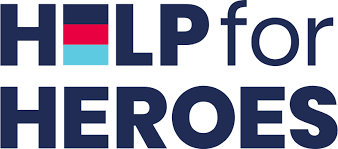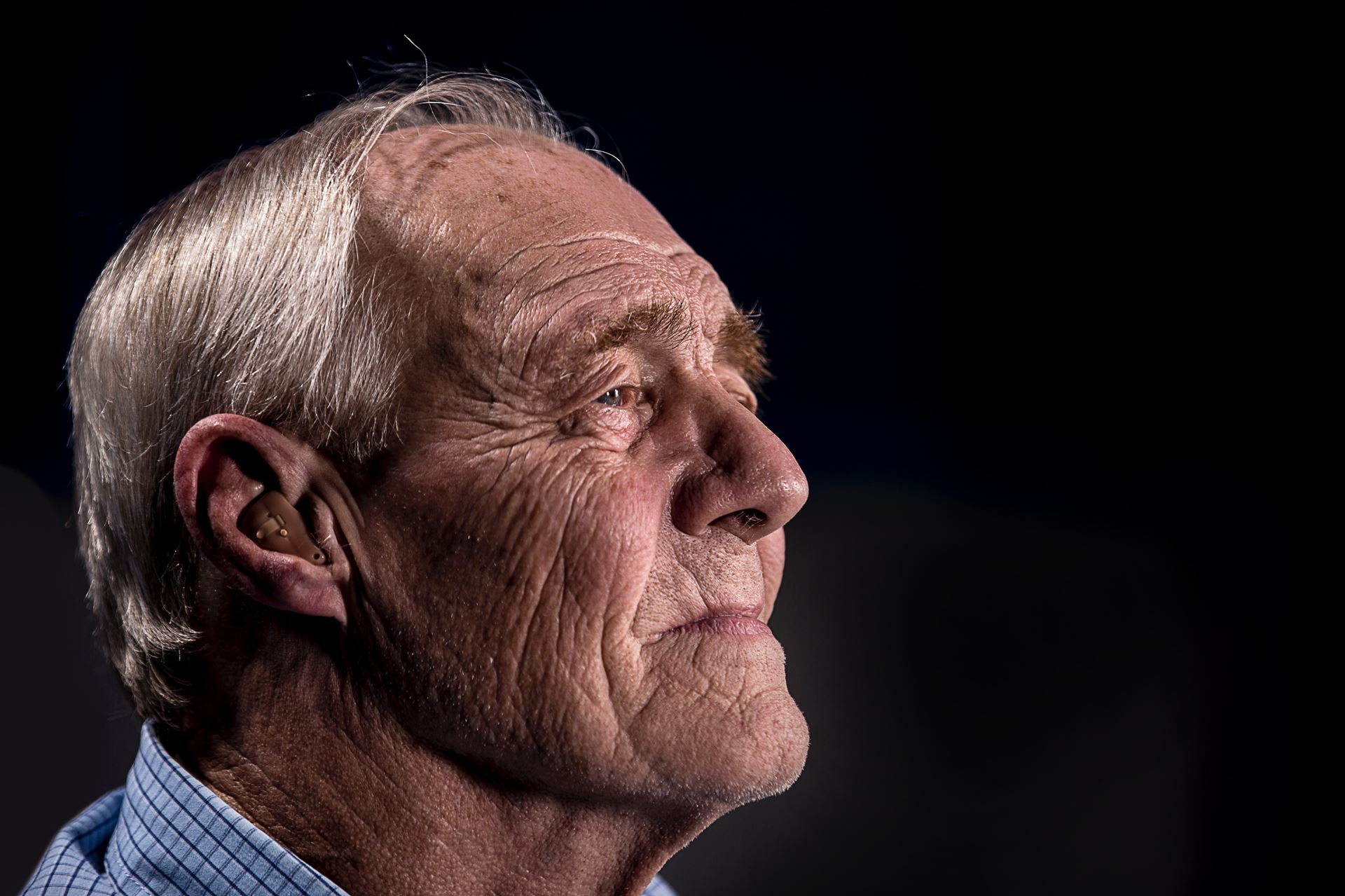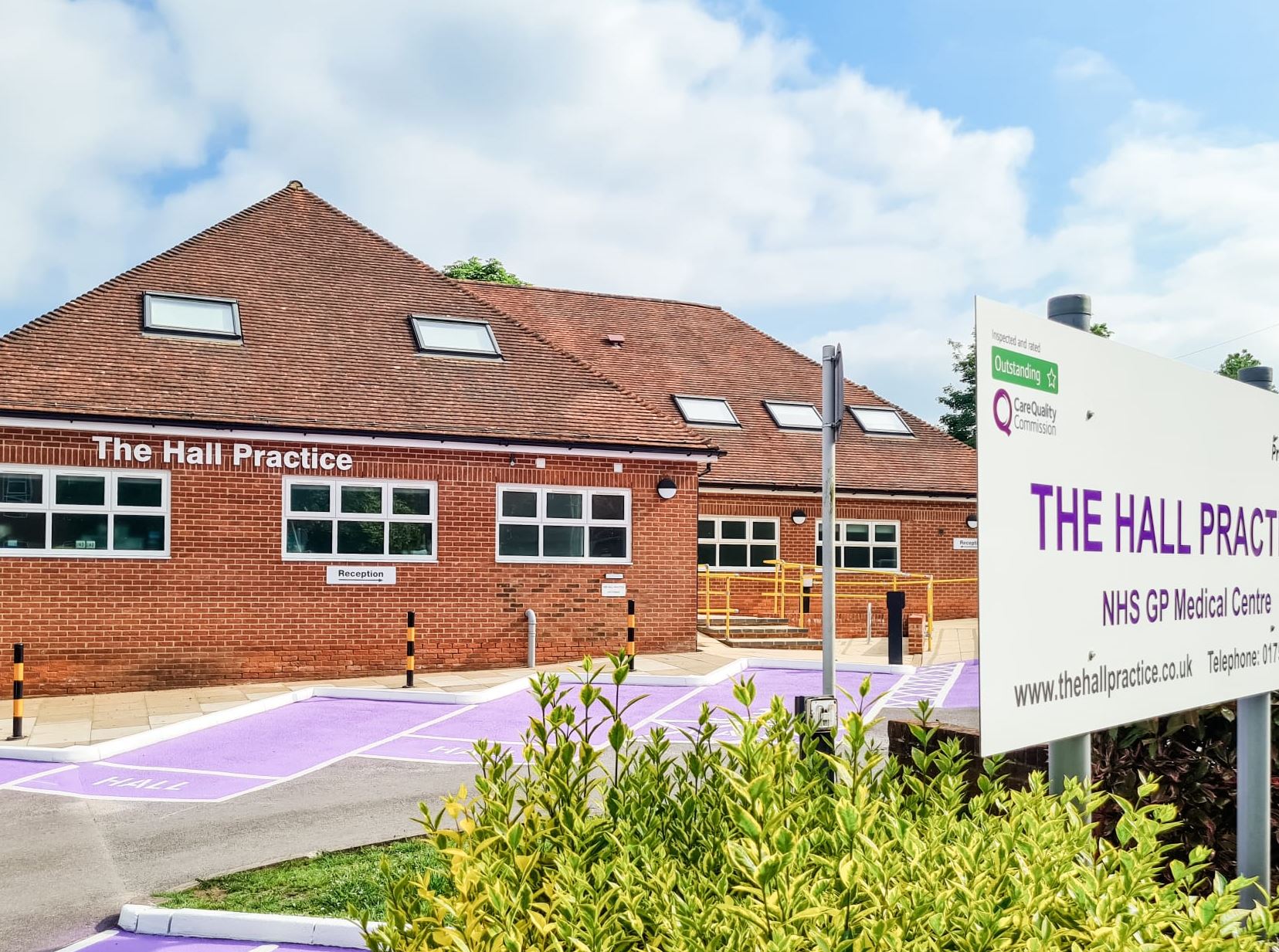Information for Veterans
Veterans’ healthcare accreditation – FAQs
What is a veteran?
A veteran is anyone who has served for at least one day in the Armed Forces, whether as a regular or reservist. It means the same as ‘ex service personnel’ or ‘ex-forces’, although not all veterans know the term or choose to associate with the term ‘veteran’. Younger veterans might refer to themselves as ‘ex-forces’, in the belief that a veteran is someone who fought in the First / Second World War.
What is the RCGP advice on veteran’s health?
Whilst many aspects of the health needs of veterans are the same as for the general public, there are sometimes significant differences, particularly in relation to conditions attributable to service life and the associated impact for individuals and their families. These differences can be reflected in the way in which healthcare is delivered, the range and types of some specific services provided and the long-term impact upon patients and families.
To learn more about the health needs of veterans and the wider Armed Forces community (which includes serving personnel (regulars and reservists) and their families), complete the following online training:
- e-learning for health training session: NHS healthcare for the Armed Forces
- e-learning for health training session: health needs of military veterans
- RCGP learning: military veterans.
Please also see the Armed Forces healthcare pages on the NHS website.
We also recommend listening to DECLASSIFIED, a series of podcasts documenting stories from the military community to help, support and guide those suffering from mental and physical illness and injury. The podcasts are intended to use the narratives of their guests to create role models, declassify stigmas and change the conversation.
How do we know if a person already registered with us, or when registering with us is a veteran?
Many veterans don't realise they are veterans, they use other terminology or don’t know that mentioning their service to their GP could help. Our advice is to ask all patients if they have ever served in the UK Armed Forces. The family doctor services registration GMS1 form includes a specific question to help with this.
Consider whether a patient who attends with a health problem, especially a mental health issue, might be a veteran or a member of the Armed Forces community. If this is not already flagged in their patient record, finding this out may help to identify any associated health issues.
Veterans are given a personal copy of their summary medical record when they leave the Services, together with information on how to obtain their full Service medical record if they need it. Further details on requesting lost records are on the NHS website.
What happens if a parent/carer who is still serving in the military wants to register their child with my practice?
Serving personnel are registered with Defence Medical Services at a Military Medical Centre. In a situation where both parents are serving, also known as dual-serving families, their children need to be registered at an NHS practice or a Military Families GP Practice, where such facilities exist. Parents being registered at a different GP practice to their children is not usual practice, but a necessity frequently encountered by dual-serving families.
What Read code should be used for a patient who is a veteran?
As there are two versions of Read coding in use, we recommend practices code a veteran as ‘military veteran’ then the computer system will code correctly on whichever version it uses.
What is the Armed Forces Covenant?
The NHS has a duty to deliver on a number of health commitments, which are set out in the
Armed Forces Covenant as follows:
- The Armed Forces community should enjoy the same standard of, and access to healthcare as that received by any other UK citizen in the area they
- Family members should retain their place on any NHS waiting list, if moved around the UK due to the service person being
- Veterans should receive priority treatment for a condition which relates to their service, subject to clinical
- Those injured in service should be cared for in a way that reflects the nation’s moral obligation to them, by healthcare professionals who have an understanding of the Armed Forces
This is reflected in principle four of the NHS Constitution, which states ‘the NHS will ensure that in line with the Armed Forces Covenant, those in the Armed Forces, reservists, their families and veterans are not disadvantaged in accessing health services in the area they reside’.
The Covenant is an important aspect of our approach to care, especially as the Armed Forces community can be at a disadvantage due to their mobility and frequent moves.
What dedicated NHS services and support are available to veterans?
Op COURAGE: The Veterans Mental Health and Wellbeing Service
In March 2021, NHS England and NHS Improvement announced the new name for its veterans mental health services; Op COURAGE: The Veterans Mental Health and Wellbeing Service. This is the new overarching name for the Veterans’ Mental Health Transition,
Intervention and Liaison Service (TILS), Veterans’ Mental Health Complex Treatment Service (CTS) and Veterans’ Mental Health High Intensity Service (HIS). The new name has been developed following feedback from veterans and their families to make it easier for those leaving the military and veterans to find help.
Op COURAGE provides specialist care and support for Service leavers, reservists, veterans and their families who can self refer or ask a GP, charity or someone else to refer them
For further information on Op COURAGE: The Veterans Mental Health and Wellbeing Service, including the contact details for the service in your region, visit www.nhs.uk/opcourage
Op RESTORE: The Veterans Physical Health and Wellbeing Service
Op RESTORE: The Veterans Physical Health and Wellbeing Service is an NHS service providing specialist care and treatment to veterans who have physical health problems as a result of their time in the armed forces.
It works alongside Op COURAGE: The Veterans Mental Health and Wellbeing Service
Op RESTORE can support you by:
- providing personalised treatment within the NHS
- treating you through military and civilian clinicians who understand the military environment and specialise in the type of physical health problems you have
- helping families and carers of veterans with physical health problems access appropriate support services
- working closely with many organisations, including GP surgeries, specialist NHS services, and military and non-military charities
Veterans Trauma Network (VTN)
The VTN is the first NHS veterans’ physical health care pathway, providing care and treatment to those with a service-attributable healthcare problem. Located in thirteen major trauma centres (Birmingham, Brighton, Bristol, Cambridge, Leeds, Liverpool, London (three centres), Middlesbrough, Nottingham, Oxford and Plymouth) across England, the VTN works closely with Defence Medical Services, national centres of clinical expertise and Op COURAGE, as well as military charities to provide a complete package of care.
It is run largely by healthcare professionals who are either veterans or serving members of the Armed Forces. GPs can use a single national email to refer veterans to the service (england.veteranstraumanetwork@nhs.net)
Prosthetics
The Veterans’ Prosthetics Panel (VPP) was established in 2012 as a way of ensuring that veterans can access high quality prosthetics regardless of which Disablement Service Centre (DSC) they attend. This additional funding is available only to veterans who have lost a limb whilst in military service. A veteran who has left the Armed Forces, but whose limb loss is attributable to an injury sustained whilst in service, also qualifies. Veterans who lose limbs after they leave the military or suffer limb loss whilst in the military, but not in a service attributable incident, such as in a civilian road traffic accident, will continue to access services as usual through their local DSC.
The additional funding for eligible veterans is for treatment that would not typically be provided by the NHS, for example higher specification prostheses than are normally available on the NHS. Funding is approved on a case by case basis, with DSCs making individual funding applications to the VPP, which set out the expected requirement and benefit if the request is supported. More information is available on the NHS webpage on services for veterans with physical injuries.
Eligible veterans are also able to access the Complex Prosthetics Assessment Clinic (CPAC), which is run by Defence Medical Rehabilitation services. CPAC supports veterans with particularly complex prosthetic socket needs who have previously been seen at the Defence Medical Rehabilitation Centre at Headley Court.
Personalised care programme for ex-forces with a long term physical, mental or neurological health condition or disability
NHS England and NHS Improvement, together with the Ministry of Defence, have published the Personalised care for veterans in England, a guide for clinical commissioning groups and local authorities, which sets out a personalised care approach for those veterans who have a long term physical, mental or neurological health condition or disability.
This guide is for individuals and organisations who are leading or involved in supporting this patient group through the delivery of NHS Continuing Health Care or a jointly agreed care plan. A supporting patient leaflet is also available.
Eligible individuals will have a single personalised care plan for all their health and wellbeing needs that is developed with them and a range of organisations, including health and social care and military charities. This approach will give the individual more choice and control over how their care is planned and delivered, meaning they can choose how best to live their life and get the right care and support to make this happen. It will also take into account personal preferences that relate specifically to the individual’s military service. As part of this, they may get a personal budget to pay for some of the care and support they need, as well as more support in the community, such as emotional and practical support from people who have similar health conditions or disabilities. To apply, individuals should contact their local clinical commissioning group.
The Veterans Covenant Health Alliance (VCHA)
The VCHA aims to improve NHS care for the Armed Forces community by supporting trusts, health boards and other providers to identify, develop and showcase the best standards of care. Over 70trusts have already been accredited as ‘Veteran Aware’, having demonstrated their commitment to eight core manifesto standards, including signing the Armed Forces Covenant, raising awareness of veterans’ healthcare needs among staff, and establishing links with local support providers. The VCHA is working with many more trusts to achieve accreditation. For further information, visit the webpage for Veteran Aware hospitals and the Veteran Aware website
More information on NHS services for veterans can be found on the NHS website here.
What other services are available to veterans?
Hearing loss and tinnitus services
In-service (MOD DMS) and veteran (NHS) provided hearing devices are provided to meet a clinical need. Veterans requiring hearing devices and tests should access via their GP and local provision, where NHS providers will be able to take account of service-related hearing issues. Private providers may, at personal cost, be able to provide non-standard equipment and devices.
More information on hearing aids: Hearing aids - NHS (www.nhs.uk)
Mobility equipment support
The Royal British Legion has a Veterans’ Mobility Fund, which provides specialist wheelchairs, orthotic equipment and other mobility related items for veterans who have a service related serious physical injury and whose needs cannot be met through statutory services. Eligibility for the fund requires the condition to be attributable to service and typically applicants will be in receipt of a War Pension or relevant award under the Armed Forces Compensation Scheme. To find out more, visit the Veterans Mobility Fund section on The Royal British Legion website.
Veterans’ Gateway
The Veterans’ Gateway is made up of a consortium of organisations and Armed Forces charities, including The Royal British Legion, SSAFA, Combat Stress and Connect Assist. It is a main point of contact for veterans seeking support, putting them and their families in touch with the organisations best placed to help with the information, advice and support they need – from
healthcare and housing to employability, finances, personal relationships and more. For more information, visit the Veterans’ Gateway website.
Contact
Contact is a group of charitable, support and state organisations that have joined forces to enhance mental health support available to the Armed Forces community. The partnership consists of Big White Wall, Cobseo, Combat Stress, Help for Heroes, The Royal British Legion, Walking With The Wounded, the NHS, the MOD, the UK Psychological Trauma Society and King’s College London. Contact aims to improve collaborative care management, increase instances of help-seeking behaviour, improve service provision, encourage best practice across the sector and improve public knowledge of what support is available and how best to access it. For more information, visit the Contact website.
Cobseo
Cobseo, as the Confederation of Service Charities, offers membership to charities who promote and further the welfare and general interests of the Armed Forces community, subject to fulfilling the membership criteria. Comprising 255 members, Cobseo provides a single point of contact for interaction with the Armed Forces community. For more information, visit the Cobseo website.
Help for Heroes
Help for Heroes provides direct, practical support for wounded, injured and sick service personnel, veterans and their loved ones from any conflict. They have four recovery centres in the UK offering medical care, guidance, support and advice. Patients can self-refer or be referred by a professional. Once referred, an initial assessment will take place within one to two weeks and there is no waiting list for treatment. For further information, visit the Help for Heroes website.
Combat Stress
Combat Stress is the UK’s leading mental health charity for veterans. It provides free specialised clinical treatment and support to ex-servicemen and women across the UK with mental health conditions. Combat Stress has a strategic partnership with the MOD and the Department of Health and Social Care. This enables the charity to work with NHS mental health to develop services suitable for military veterans. For further information, visit the Combat Stress website.
Blesma
Blesma supports limbless veterans to lead independent and fulfilling lives. Blesma is dedicated to assisting serving and ex-service men and women who have suffered life-changing limb loss or the use of a limb, an eye or loss of sight. They support these men and women in their communities throughout the UK and provide centralised assistance to those living overseas.
Blesma works closely with the NHS to ensure the latest advances in the relevant medical fields are converted into practical solutions that can benefit all of their members. They do not provide members prosthetics, but they do help prosthetists develop their skills at undergraduate and PhD level.
For further information, visit the Blesma website.
What happens now I am accredited?
Once your application has been reviewed and accepted, you will then be sent a certificate to display in your practice, as well as a patient poster and patient and staff leaflets. A poster for your waiting room screen will be sent electronically, along with an accreditation mark and these FAQs. The nominated lead for your practice will be sent regular updates and news.
Will our accreditation be reviewed?
We will review your accreditation every three years. This will also give us the opportunity to review and update our information.
Housing and Financial Guide for Veterans
When a member of the British military retires from active service and returns to civilian life, the adjustments required can be significant. Unmarried soldiers with no children may have no dependents, but if they have been serving overseas the idea of finding a new home via a private let can be somewhat daunting.
Equally, many of the men and women of our armed forces may have been living in Service Family Accommodation and now find themselves seeking a roof over their heads for themselves and their families. This guide will offer advice that can make the transition from serviceperson to civilian as smooth as possible.
https://businesscostsaver.co.uk/guide-for-veterans/
Are you a veteran or have a relative who is?
Healthwatch Bucks article to raise awareness of what healthcare veterans are entitled to:
https://www.healthwatchbucks.co.uk/2019/07/veterans-care-in-gp-surgeries/
Page created: 21 February 2023




